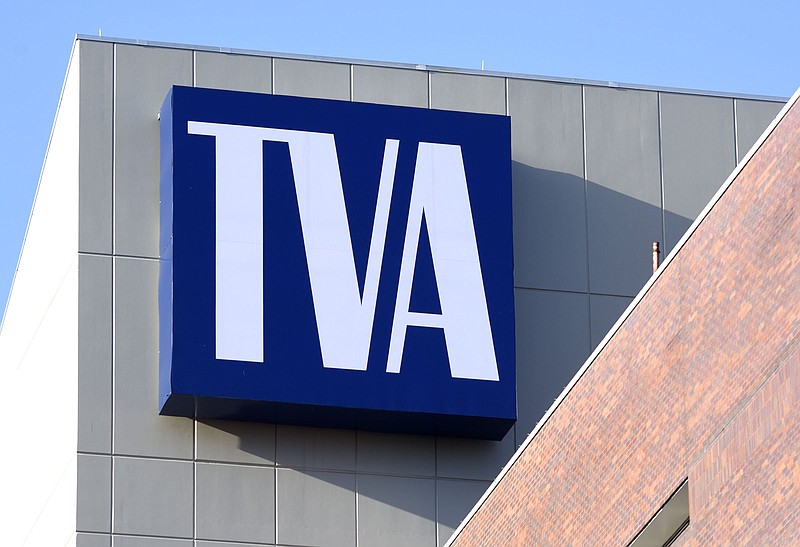Memphis may be able to get cheaper wholesale electricity if it splits from the Tennessee Valley Authority, but major bond rating agencies warn that Memphis' bond rating could be negatively impacted if Memphis Light Gas & Water leaves TVA and has to borrow more money to build its own transmission and generation assets.
Standard & Poors last week downgraded the Memphis utility from a "AA-" to "A+" rating, while Moody's Investors Service warned that it could downgrade its assessment of MLGW's debt if it splits with TVA and has to borrow more money for its own generation or transmission connections with other wholesale suppliers.
"Since MLGW's strong credit profile reflects in part its relationship with TVA, the termination of this relationship would be viewed negatively from a credit perspective and would likely trigger downward rate pressure, particularly if MLGW assumed all or a large portion of its power procurement responsibilities," said Scott Solomon, lead analyst for Moody's in a new assessment of Memphis's debt.
Memphis' city-owned utility has voted to issue requests for wholesale power proposals to test the energy market to see if there is a better and less expensive alternative to TVA, which has supplied nearly all of Memphis's electricity for the past 81 years.
A study done by the Siemens consulting group found that the Memphis utility could save up to $1.9 billion over the next two decades by generating its own natural gas and solar power and joining a nearby regional transmission organization- the Midcontinent Independent System Operator (MISO) - to replace the electricity now supplied by TVA to MLGW's 421,000 customers.
Memphis Light Gas & Water, which now pays TVA about $1 billion a year for power, commissioned the Siemens consulting firm to analyze its power supply options for the future after four previous studies suggested that MLGW could save anywhere from $100 million to $450 million annually by splitting with TVA. Siemens estimates MLGW would save $122 million a year, even if it matches all of the tax-equivalent payments and economic development incentives offered by TVA.
But TVA's chairman, Memphis attorney John Ryder, said he is "continually concerned and mystified by some of what I hear" from those urging Memphis to break away from TVA. Ryder said he worries that Memphis' bond rating could be hurt, raising its borrowing costs, and he questions how MISO can deliver cheaper power when Memphis rates are lower than many MISO-served cities, including Little Rock, Arkansas on the other side of the Mississippi River.
TVA President Jeff Lyash said MLGW rates "are already some of the lowest in the country and some of the best of any of their peer cities.
"If Memphis were to adopt the long-term power agreement (with TVA), it would be able to lower their costs by about $22 million a year and the 2.5% reduction (approved by TVA last week as part of a pandemic relief measure) will save Memphis another $15 million more and make their rates even more competitive," Lyash said. "This is why we believe that the position that Memphis is in and can put itself in the future with TVA is among the best in the country. We think TVA is the best value proposition."
But those urging Memphis to split with TVA insist the wholesale power can be bought cheaper and just as reliably from other providers, helping to lower power bills in a city where many struggle to pay their monthly light bills. Herman Morris, a former CEO at MLGW who is now working as a consultant at Friends of the Earth urging Memphis to leave TVA, says Memphis rates are now lower because of its local service advantages as a multi-service municipal utility, not because of TVA wholesale rates.
"The studies, including those that we did when I was still at MLGW, consistently show that TVA is not the lowest price wholesaler supplier," he said. ""In reality, the opportunity to reduce the cost of purchased wholesale power, I would think, should be a reason to secure an excellent bond rating because it helps ensure that you get the best price for the customer."
MLGW is in the process of hiring a consulting firm to receive and evaluate wholesale power offers to determine what is the best long-term interest for Memphis residents.
Morris said TVA officials "seem to be offering another one of their fear-mongering, fantasy arguments" to try to keep MLGW- TVA's biggest customer - in its fold.
Lyash said he wants Memphis "to stay with TVA as part of this public power model because we think together we're going to deliver tremendous results that are going to outpace the rest of the industry."
"But we also support MLGW in exploring its alternatives if that is what their leadership believes they should do," Lyash said.
Contact Dave Flessner at dflessner@timesfreepress.com or at 423-757-6340.
